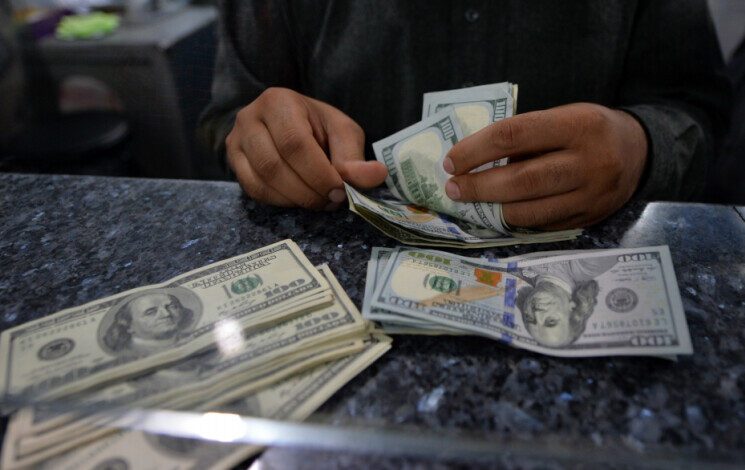الأسعار في لبنان… انفلات خارج قاعدة العرض والطلب!
تجاوزت موجة الغلاء في لبنان أي منطق اقتصادي، حيث أظهر المستهلك ارتفاعات غير مبررة في الأسعار تجاوزت 30% لبعض السلع الغذائية منذ بداية تشرين الثاني، رغم استقرار أسعار الصرف وعدم تغير تكاليف الشحن منذ شهر تشرين الأول. هذه الفوضى باتت تهدد المواطن اللبناني، مع تفاوت الأسعار بين متجر وآخر، وسط غياب شبه كامل للرقابة الرسمية.
غياب الرقابة وفوضى الأسعار
يُرجع الخبير الاقتصادي أحمد جابر السبب الرئيسي لهذه الأزمة إلى غياب الرقابة، مشيرًا إلى أن السوق اللبناني لم يعد يعتمد على قاعدة العرض والطلب، بل تحول إلى حالة من الانفلات يتحكم فيها التجار بفرض الأسعار وتعظيم أرباحهم. ويؤكد جابر أن الأزمة الحالية ليست وليدة اللحظة، موضحًا: “قبل الحرب، شهدنا حالة من التفلت، حيث تُرك تحديد الأسعار للتجار كما تُركت قيمة الليرة للصرافين. واليوم، يُعاد السيناريو نفسه، لكن هذه المرة على حساب المواطن.”
تفاوت الأسعار بين المتاجر
من أبرز الظواهر المثيرة للجدل، تفاوت الأسعار الكبير بين متجر وآخر لنفس السلعة، وهو أمر لا يمكن ربطه بتكاليف الشحن أو الظروف العامة. ويشير جابر إلى أن السبب الحقيقي يكمن في غياب الرقابة الرسمية، وترك الأمور لمزاجية التجار الذين يسعون لتحقيق مكاسب دون أي رادع قانوني أو أخلاقي.
ارتفاع تكاليف الشحن… حجة غير مقنعة
بالرغم من اعتراف جابر بارتفاع تكاليف الشحن بسبب تغيير مسارات النقل وزيادة التأمينات نتيجة الحرب، إلا أنه يؤكد أن هذه الأسباب لا تبرر الارتفاع الكبير للأسعار في لبنان مقارنة بالدول الأخرى. وأضاف: “التضخم الذي شهده لبنان أكبر بكثير مما شهدته دول أخرى، مما يشير إلى أن المشكلة أعمق من مجرد أكلاف الشحن.”
دعوة إلى تفعيل الرقابة
يشدد جابر على ضرورة أن تتحمل الدولة اللبنانية مسؤوليتها في حماية المستهلك، عبر تفعيل الرقابة على الأسعار ومنع التجار من استغلال الأزمة لتحقيق مكاسب غير مشروعة. وأضاف: “غياب المحاسبة شجع التجار على التمادي في رفع الأسعار، متجاهلين تمامًا المعاناة الإنسانية للمواطنين.”
المصدر: ليبانون ديبايت
Lebanon’s Price Surge: A Breakdown of Free Market Dynamics
Lebanon’s markets have witnessed unprecedented price hikes, with some food items surging by over 30% since early November. This comes despite stable exchange rates and unchanged shipping costs since October. Such irregularities have left Lebanese citizens grappling with an economic crisis that lacks logical justification, as price disparities between retailers grow wider amid minimal governmental oversight.
Lack of Oversight and Market Chaos
Economic expert Ahmad Jaber attributes the current turmoil to the absence of regulatory oversight, stating that Lebanon's economy has deviated from the principles of supply and demand. He explains, “The market now operates on unregulated profiteering, with traders exploiting the situation for financial gain at the expense of citizens.” Jaber also highlights that this issue is not new, noting that price manipulation predates the current conflict.
Price Disparities Across Stores
One alarming aspect of the crisis is the stark variation in prices for the same product across different retailers. Jaber dismisses shipping costs as a factor, instead blaming the unregulated practices of traders. He emphasized that these discrepancies reflect a failure of government agencies to impose accountability.
Shipping Costs: An Overused Excuse
While Jaber acknowledges increased shipping costs due to altered routes and higher insurance rates amid the ongoing war, he argues that these factors fail to justify Lebanon's exorbitant inflation compared to other countries. “The scale of inflation in Lebanon far exceeds that of other nations facing similar conditions,” he noted.
Call for Consumer Protection
Jaber calls for urgent government action to implement stricter price controls and prevent traders from exploiting the crisis. He said, “The absence of accountability has emboldened traders to arbitrarily inflate prices, ignoring the dire plight of citizens.”
Translated by international scopes team
 International Scopes – سكوبات عالمية إجعل موقعنا خيارك ومصدرك الأنسب للأخبار المحلية والعربية والعالمية على أنواعها بالإضافة الى نشر مجموعة لا بأس بها من الوظائف الشاغرة في لبنان والشرق الأوسط والعالم
International Scopes – سكوبات عالمية إجعل موقعنا خيارك ومصدرك الأنسب للأخبار المحلية والعربية والعالمية على أنواعها بالإضافة الى نشر مجموعة لا بأس بها من الوظائف الشاغرة في لبنان والشرق الأوسط والعالم




